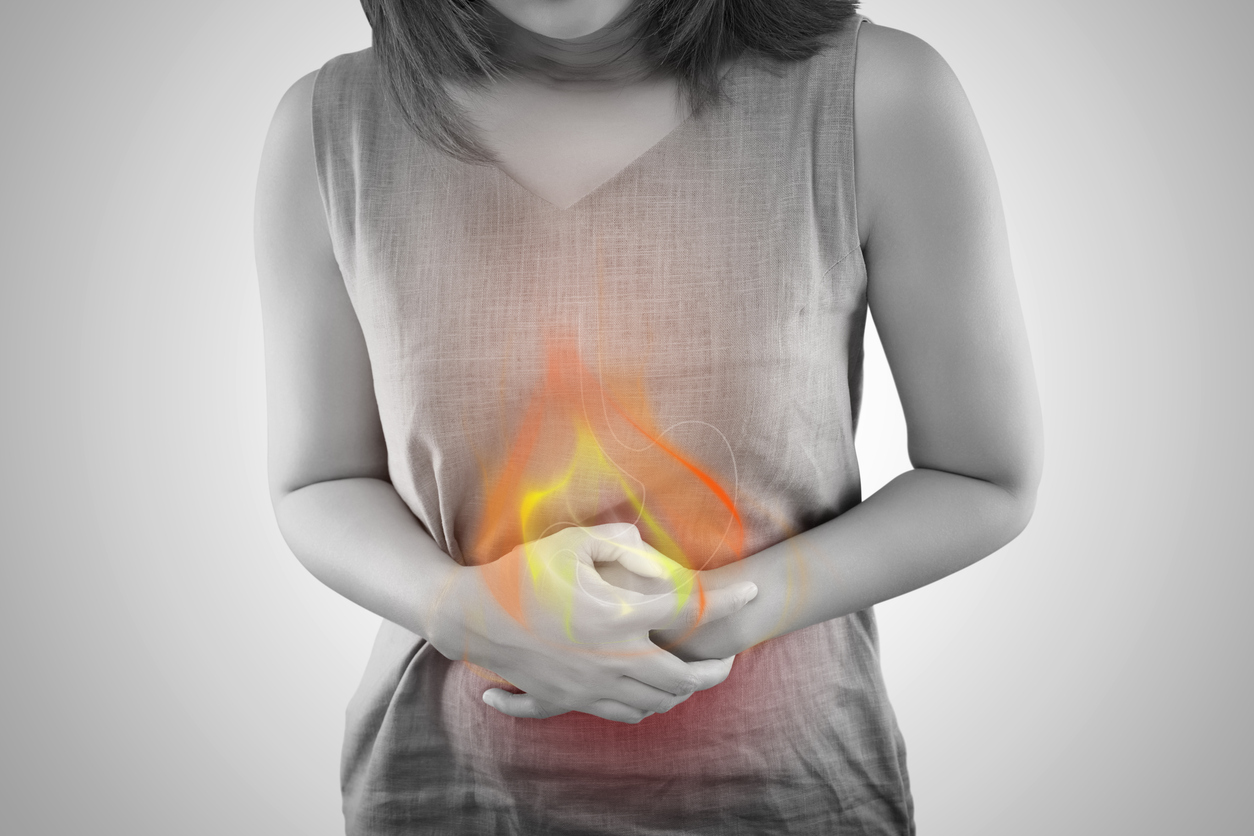There is a lot of similarity in symptoms of Polycystic Ovarian Syndrome (PCOS) and Menopause. Find out how they affect one another and how to manage PCOS and Menopause.
As a result of menopause, your body produces less Oestrogen and progesterone, which eventually stops you from ovulating (technically, a full year without a period signals the start of menopause). Before menopause occurs, women with PCOS may already have low progesterone levels.
This indicates that while both PCOS and menopause affect the levels of progesterone in your blood, they do so in various ways and can potentially exacerbate the hormonal imbalance already present in your body. Additionally, women with PCOS typically experience menopause two years later than women without the condition.
Keep reading to understand more about PCOS and what to anticipate as you near menopause.
The similarity in symptoms of PCOS and Menopause:
Several PCOS symptoms are comparable to perimenopausal symptoms (the period leading up to menopause that is often characterized by hot flushes and irregular periods). This can make it challenging to create a new diagnosis of PCOS during perimenopause, and symptoms may even be disregarded. However, even when a person has reached the age at which conception can occur naturally, it is crucial to detect and treat PCOS.
Perimenopause, as well as PCOS, can bring on the following symptoms:
- Irregular or missed periods
- Weight gain
- Mood swings
- Difficulty sleeping
- More or new hair growth in areas such as the face and chest
- Difficulty sleeping
It is crucial to manage the symptoms and discuss any concerns with your GP because PCOS is a lifetime disorder, and many of its implications can affect your long-term health.
Difference between PCOS and Menopause:
The following symptoms are specific to PCOS and do not present during perimenopause:
- Acne And Other Skin Issues
- Pelvic Pain
- Headaches
The following symptoms are specific to perimenopause and are absent from PCOS:
- Hot Flashes
- Night Sweats
- Painful Or Uncomfortable Sex
- Urine Leaks
- Urinary Tract Infections
- Dryness And Weakening Of Tissue In The Vagina
- Changes In Sex Drive
Both illnesses’ symptoms will appear simultaneously in perimenopausal PCOS women.
PCOS and Menopause symptoms:
You may still experience symptoms if you have PCOS, as it doesn’t go away with menopause. In addition, several PCOS symptoms are comparable to perimenopause symptoms. This can make it challenging for women to receive a new PCOS diagnosis during perimenopause.
PCOS Symptoms –
- Mood changes
- Pelvic pain
- Sleep difficulties
- Thinning hair on the head, especially in middle age
- Acne and skin problems
- Irregular or missed periods
- Headaches
- Infertility
- Unwanted Hair Growth
- Weight Gain
Menopause Symptoms –
- Changes In Sex Drive
- Irregular Or Missed Periods
- Hot Flashes and Night Sweats
- Infertility
- Mood Changes
- Pain And Discomfort During Intercourse
- Sleep Difficulties
- Thinning Hair On The Head, Especially In Middle Age
- Unwanted Hair Growth
- Urinary Incontinence
- Vaginal And Urinary Tract Infections
- Vaginal Dryness And Thinning Of Vaginal Tissue
- Weight Gain
Is menopause worse if you have PCOS?
PCOS may impact your health in different ways. It raises the possibility of:
- Impaired Glucose Tolerance, Insulin Resistance, And Type 2 Diabetes
- Chronic Inflammation
- Infertility
- High Blood Cholesterols And Fat
- Stroke
- Heart Attack
If you have many risk factors, your risk of acquiring certain disorders may be higher. Other danger signs consist of:
- Aging
- Being In Perimenopause Or Menopause
- Being Overweight
The risk of difficulties during menopause may be lower for some PCOS sufferers.
Can PCOS develop during perimenopause?
- PCOS may emerge at any age following puberty.
- The majority of women learn they have PCOS in their 20s or 30s.
- PCOS can manifest itself at any point during a woman’s reproductive years, and it is not unusual for women to do so during the perimenopausal period.
How to manage PCOS and perimenopause:
- Control your weight –
Being overweight increases your chances of insulin resistance and heart attack. Diabetes type 2 might be a result of insulin resistance. Try the following tactics to better your diet and manage your weight:
• Don’t eat seconds and use smaller plates and portion sizes.
• Limit or eliminate harmful carbohydrates.
• Pick foods high in complex carbohydrates.
• Consume a lot of seasonal fruits and vegetables.
• Move your body every day.
• Sign up for workout courses or join a gym. - Improve your sleep –
• Try to maintain a consistent bedtime and wake-up time each night and each morning.
• Up to two hours before bed, stay away from screens, and don’t use your smartphone in the bedroom.
• Get new, comfortable bedding and throw out your old pillows and mattresses.
• Avoid consuming caffeine after noon and consuming large meals after midnight. - Ease hot flashes
• Dress in layers so you can take one off when you start to experience a hot flash.
• Limit your intake of alcohol, caffeine, and spicy meals.
• Keep the temperature in your bedroom cool. If you become too warm, you can easily kick the blankets off.
• Think about getting a cool gel sleeping mat. - Take Medicine
• The majority of menopause symptoms can be controlled by altering one’s lifestyle.
• If your symptoms are severe, you might wish to discuss possible drugs with your doctor.
• Menopausal hormone therapy may be an option in some circumstances, but it’s not for everyone.
To conclude, you will continue to experience symptoms of PCOS even after menopause because there is no cure for it. Menopause may begin for PCOS sufferers later than for those without the illness.
Paying close attention to lifestyle factors like diet and exercise might help you reduce or even get rid of some perimenopausal and PCOS symptoms.


















